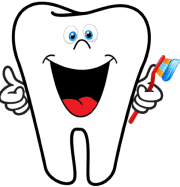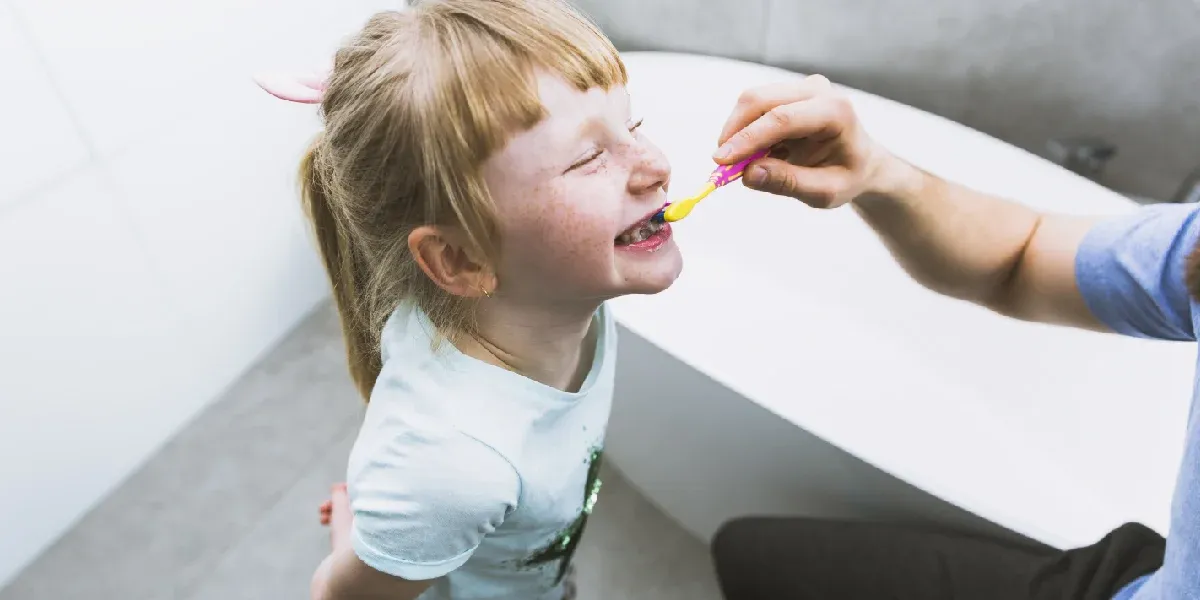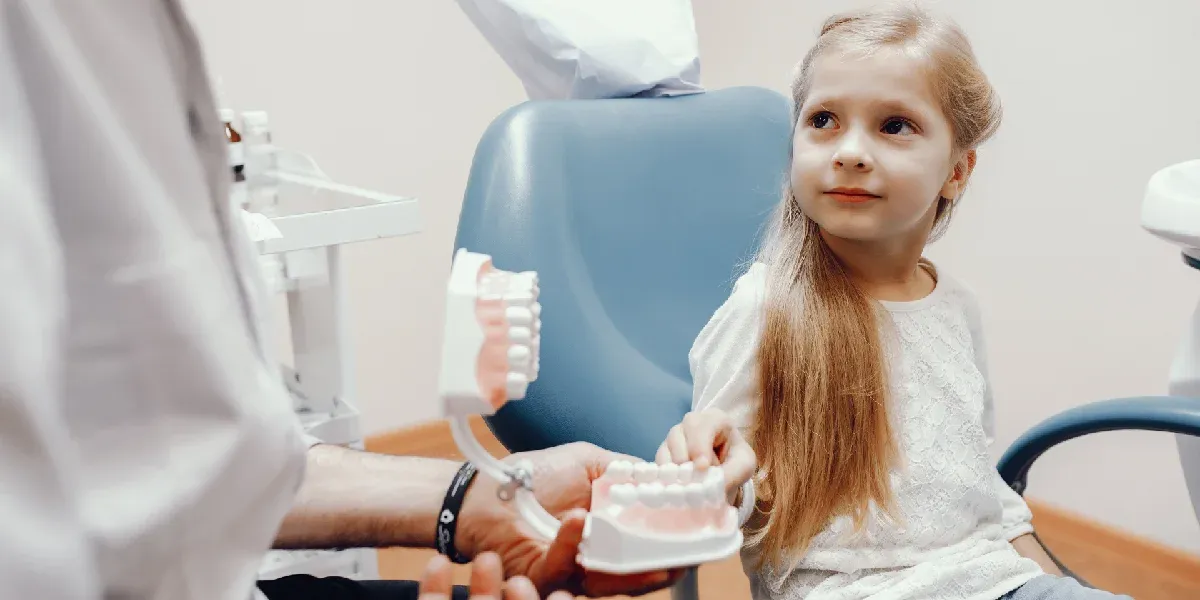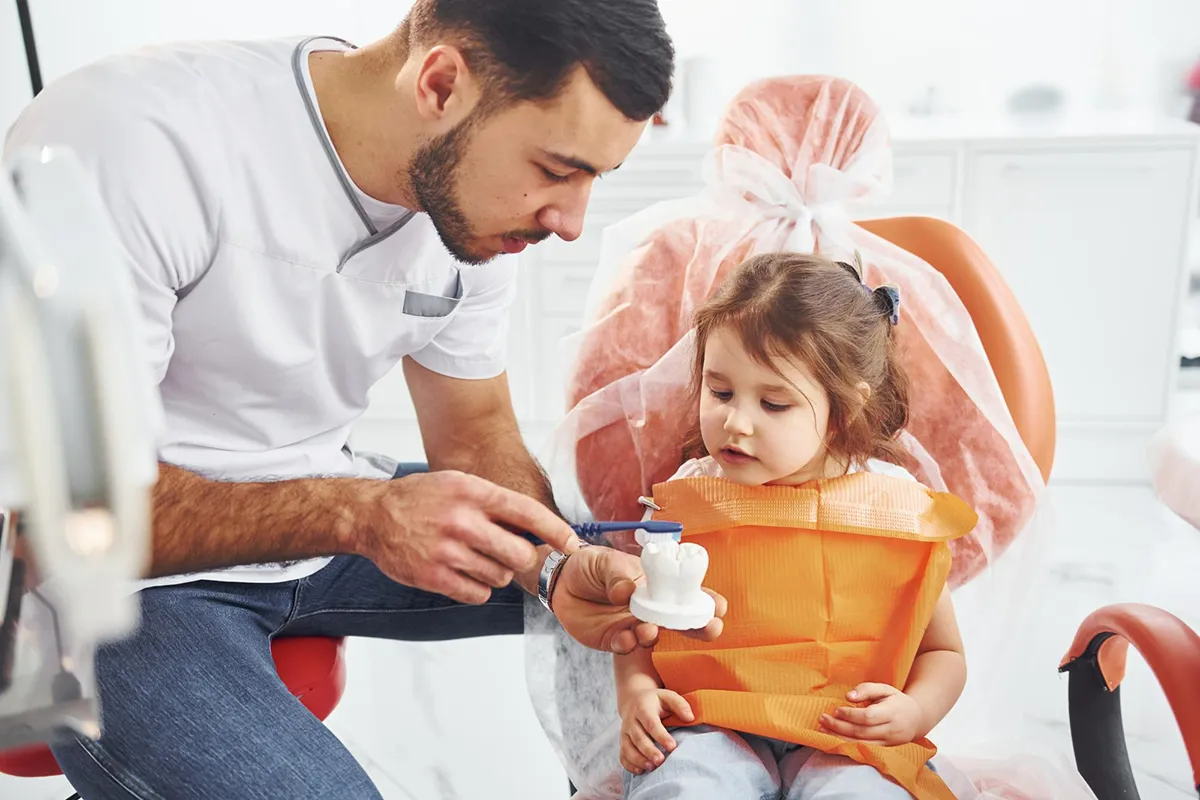
Teaching Kids Oral Hygiene
Explore effective methods to educate children about the importance of oral hygiene and make it an enjoyable experience.
Ensuring good oral hygiene for kids is key to their overall health game. Building strong oral care habits early on sets the stage for a lifetime of healthy practices and confident smiles. Regular brushing and flossing take on the superhero role, fighting off plaque, that sneaky bacterial film capable of causing tooth decay, cavities, and gum troubles.
Teaching kids the importance of thorough oral care is like giving them a secret weapon for prevention. These habits aren't just for now; they're the groundwork for a future filled with healthy grins. Children who stay on top of brushing and flossing are more likely to dodge dental issues as they grow into adults.
But wait, there's more to this oral adventure! Healthy teeth and gums are the unsung heroes behind proper jaw and facial development in children. Routine dental care also looks for potential tooth misalignments or bite hiccups. And, of course, keeping up good oral hygiene isn't just about saying goodbye to bad breath; it's about creating a haven for oral health.
Are you excited to dive in? This blog is here to guide you with some engaging ways to educate your children about the importance of oral health. So, let's embark on this journey for healthier smiles!
Significance of Oral Care
Oral care goes beyond just brushing your teeth for a nice smile. It is crucial because it helps prevent health issues, contributes to overall well-being, and saves money on dental treatments. Here's why it matters, along with some interesting facts:
- Preventing Tooth Decay and Cavities:
Doing simple things like regular brushing and flossing helps keep cavities away. Globally, 60-90% of school kids and almost everyone as adults deal with cavities (World Health Organization).
- Stopping Gum Issues:
Taking care of our teeth is like having a superhero shield against gum problems. In the U.S., almost half (47.2%) of adults aged 30 and up deal with gum trouble (Centers for Disease Control and Prevention).
- Connecting Oral and Overall Health:
Our teeth aren't just for chewing; they're buddies with our overall health. Things like heart problems and diabetes can tag along if our teeth aren't happy, according to the American Dental Association.
- Boosting Digestive Well-being:
Healthy teeth and gums are like digestive superheroes, ensuring our food is processed correctly. When oral health takes a hit, it can mess with our eating and affect our overall digestion.
- Fresh Breath All the Way:
Regular oral care removes the bacteria causing bad breath. About 80 million people are dealing with chronic bad breath, often because of not-so-great oral habits.
- Early Warnings for Health Troubles:
Those routine dental check-ups aren't just about teeth; they can signal trouble elsewhere. Dentists can spot signs of diabetes, osteoporosis, and certain types of cancers during these check-ups.
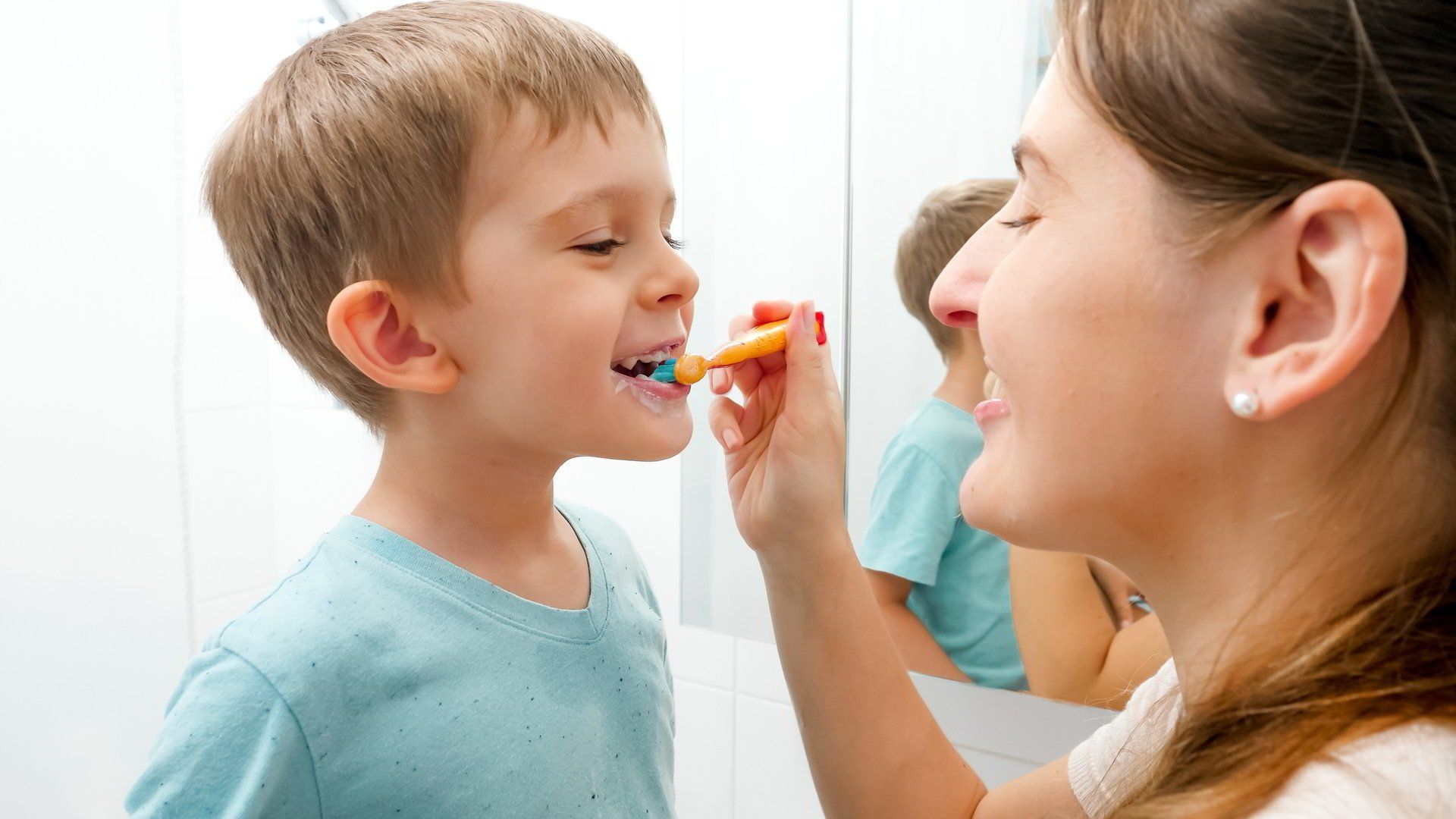
- Saving Money:
Dental treatments can be pricey. By sticking to good oral habits, you're not just protecting your teeth; you might save a pretty penny on potential dental problems.
- Affecting School Days:
Poor oral health means more missed school days for kids due to dental pain, affecting their studies and general well-being (American Dental Association).
- Global Oral Health Struggles:
The Global Burden of Disease Study estimates that oral issues impact 3.5 billion people globally. The most common problem? Untreated dental cavities in permanent teeth affect a staggering 2.3 billion people worldwide.
Creative Ways to Teach Kids about Dental Care
Creating an enjoyable learning experience about kids' dental hygiene not only captures children's interest but also lays the foundation for a lifetime of maintaining healthy smiles. Here are some creative ways to make the learning experience enjoyable:
- Interactive Demonstrations
Show children how to brush and floss correctly through interactive demonstrations. Use a large model of teeth, a puppet, or even their teeth in front of a mirror to demonstrate the correct techniques.
- Storytelling Sessions
Create engaging stories that feature characters who take care of their teeth. Incorporate themes of adventure and mystery to make the stories memorable. Discuss the importance of regular brushing and dental check-ups as part of the characters' routines.
- Use of Visual Aids
Utilize colorful posters, diagrams, and videos to explain the concepts of oral hygiene visually. Visual aids can help children understand the impact of brushing and flossing on their teeth and gums.
- Educational Videos and Apps
Introduce educational videos or apps designed specifically for children that teach oral hygiene in a fun and interactive way. Many apps use animations and games to make learning entertaining.
- Hands-On Activities
Encourage creativity and reinforce oral care by organizing hands-on activities such as creating a "toothbrushing chart" or a "dental health collage."
- Role-Playing Games
Let children play roles as dentists, hygienists, or even teeth themselves. Role-playing games provide a hands-on experience and help children understand the different aspects of oral hygiene.
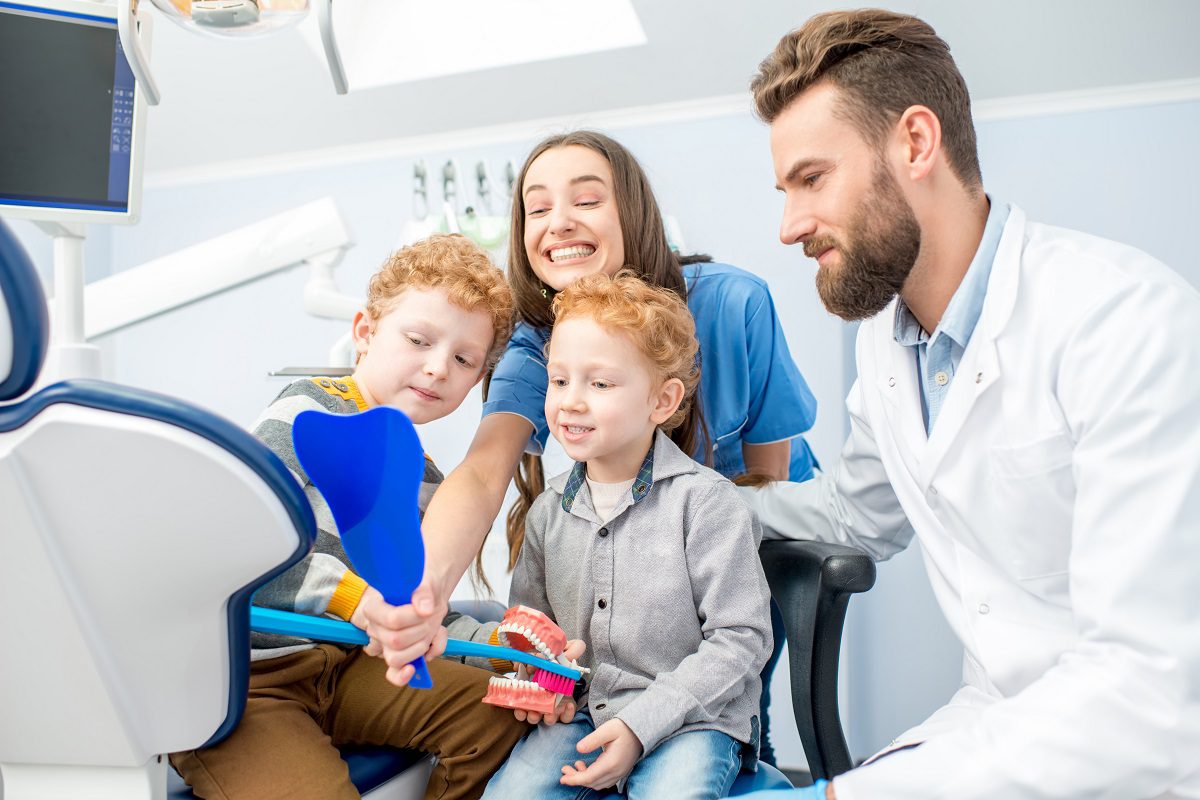
- Dental Health Kits
Provide children with dental health kits, including toothbrushes, toothpaste, and floss. Personalized kits make oral care feel special and encourage a sense of responsibility.
- Guest Speaker or Dentist Visit
Arrange for a dentist or dental hygienist to visit the classroom. A real-life professional can share insights, answer questions, and make oral health more relatable for children.
- Interactive Workshops
Conduct interactive workshops where children actively participate in learning about oral hygiene. Use games, quizzes, and discussions to reinforce critical concepts.
- Reward Systems
Implement a reward system to motivate children to maintain good oral hygiene. Use stickers, certificates, or small incentives to recognize and celebrate their efforts.
- Field Trips to Dental Clinics
Organize field trips to local dental clinics. Children can see dental equipment, meet dental professionals, and better understand what happens during a dental visit.
- Incorporate Technology
Leverage online platforms or apps offering interactive and virtual oral hygiene experiences. Engaging in virtual or augmented reality activities can be entertaining and educational for children.
- Toothbrush Pet Parade
Introduce a variety of toothbrushes with different animal characters. Have a "Toothbrush Pet Parade" where each child picks their favorite toothbrush "pet" and learns how to take care of it by brushing their "teeth."
“Teaching children good oral hygiene is not just about brighter teeth; it’s an investment in their overall health and confidence.”
- Edible Teeth Model
Create a simple edible teeth model using marshmallows for teeth, yogurt for gums, and cereal for plaque. Demonstrating proper brushing removes plaque, making it a tasty and interactive lesson.
- Teeth-Friendly Snack Time
Plan a "Teeth-Friendly Snack Time" with crunchy fruits and veggies to teach the importance of a healthy diet for oral health and proper dental hygiene.
- Dental Health Obstacle Course
Set up an obstacle course with different stations representing aspects of dental care. For example, crawling under a "toothbrush bridge" or tossing a "plaque ball" into a "rinse bucket." It will add a physical activity element to the lesson.
- Interactive Workshops
Conduct workshops with interactive elements such as games, quizzes, and discussions to make the learning experience engaging and memorable.
Remember to tailor these methods to the age group and preferences of the children to make the learning experience both effective and enjoyable.
Final Thoughts
A consistent oral care routine for children is vital to their overall health. Fun and positive elements can make brushing their teeth a lifetime habit for bright smiles. To learn more about teaching your kids healthy oral habits effectively, call us now to schedule an appointment with our qualified teams of dentists who can answer all your curious kids' questions.
Contact your kids' dentist in Stockton, Dr. Sajjad Rizvi, D.D.S. at Happy Kids Dental, to learn more about how to teach kids about Oral Hygiene.
Resource:
Creating a Positive Dental Experience for your child: Tips for Parents
*This media/content or any other on this website does not prescribe, recommend, or prevent any treatment or procedure. Therefore, we highly recommend that you get the advice of a qualified dentist or other medical practitioners regarding your specific dental condition*
Subscribe To Our Newsletter
Get Updates And Learn From The Best
